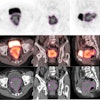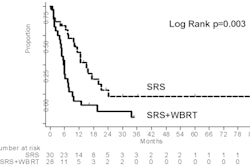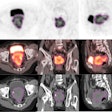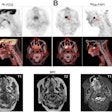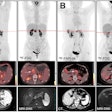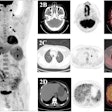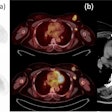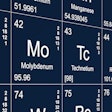The U.S. Department of Veterans Affairs (VA) has suspended prostate brachytherapy programs at nearly half of the VA medical centers performing the procedure, VA representatives told members of U.S. Congress last month in hearings held to investigate allegations of shoddy work at a VA facility in Philadelphia.
The number of program suspensions was higher than what had originally been revealed, and at least one member of Congress expressed frustration that the VA had apparently known of problems in its brachytherapy programs for six years before the problems became publicly known in a New York Times article on June 21.
The story claimed that a single board-certified radiation oncologist under contract to the Philadelphia VA Medical Center (VAMC) allegedly botched almost 80% of the prostate cancer brachytherapy procedures he performed. Between 2002 and May 2008, when the program was shut down, 92 of 114 patients were subjected to improperly performed brachytherapy treatments, the article claimed.
Other problems were identified at VA facilities in Cincinnati; Jackson, MS; and Washington, DC. The article also claimed that lack of quality control and peer review at the Philadelphia VAMC allowed the errors to go undetected for six years, and that the Veterans Health Administration (VHA) failed to identify problems due to inadequate oversight procedures.
Congressional hearings
The allegations sparked investigations by the Committees on Veterans' Affairs of both the U.S. Senate and the House of Representatives. A field hearing was held in Philadelphia on June 29 and subcommittees for U.S. veterans continued to probe into the situation. On July 22, members of the U.S. House of Representatives Veterans Affairs oversight and investigations subcommittee held a hearing to evaluate systemwide safety standards of the VA's brachytherapy programs.
The hearings consisted of two and a half hours of testimony from three panels of 16 witnesses representing the VHA, the Nuclear Regulatory Commission (NRC), the University of Pennsylvania's Department of Radiation Oncology, the American Society for Radiation Oncology, and the Joint Commission.
In his opening remarks, subcommittee chairman Rep. Harry Mitchell (D-AZ) chastised the VHA for failing to report the problem for six years, noting that the subcommittee just weeks earlier had reviewed problems with respect to VA endoscopy procedures. He added that the subcommittee's main concern was that problems that occurred at the Philadelphia VAMC could be happening at VAMC facilities still performing prostate cancer brachytherapy.
Mitchell also notel that Congress has asked the VA Office of Inspector General to review and assess the VHA's brachytherapy programs as an investigation independent of one currently being conducted by the Nuclear Regulatory Commission. The NRC's inspection report on all 13 VAMCs providing brachytherapy and the performance of the VA National Health Physics Program (NHPP) inspections are still being completed and have not yet been published.
Update on Philadelphia VAMC
E. Lynn McGuire, director of the NHPP, testified that six, or 5.2%, of the 116 patients who received treatment from Philadelphia VAMC radiation oncologist Dr. Gary Kao, Ph.D., had met the VA's requirement for biochemical failure. An additional eight patients, or 6.9%, had rising prostate-specific antigen levels. No additional details about these patients were provided.
McGuire did state that it was unusual to see recurrent disease in an area that received adequate treatment. Some Philadelphia VAMC patients had been sent to the Puget Sound Health Care System in Seattle to receive salvage treatment by Dr. Kent Wallner, chief of radiation oncology, who also was a hearing witness.
McGuire also acknowledged that the low and stable prostate-specific antigen levels of the remaining 102 patients do not mean they will remain so over the next 10 years. He noted that successful treatment is equated with long-term outcomes and evaluation 10 to 20 years following treatment, and insinuated that it was premature to make this judgment for Kao's patients.
Actions by the VHA
With the closure or suspension of some of the VA brachytherapy programs, veterans diagnosed with early-stage prostate cancer currently can receive treatment at seven VA healthcare facilities in the U.S., according to Joseph Williams Jr., the assistant deputy under secretary for health for operations and management of the Veterans Health Administration.
An eighth facility, the VA Greater Los Angeles Healthcare System, is expected to offer brachytherapy treatment in August, after pausing its program for an unspecified length of time to conduct a comprehensive review of procedures. The VAMC in Durham, NC, terminated its internal program; its patients are receiving their treatment at Durham Regional Hospital.
The VAMC in Cincinnati, one of the facilities to have its brachytherapy treatment program suspended in June 2008, was found to be in compliance with VA standards and is in the process of fulfilling national VA requirements so that it can reopen. The programs at VA hospitals in Jackson, MS, and Washington, DC, remain under investigation. The Philadelphia program will not reopen until all NRC concerns have been satisfied and until requirements of the VA's radiation oncology program are met.
In November 2008, as a result of the investigation by the NHPP in Philadelphia, the VA changed its criteria for suspending prostate brachytherapy programs. Suspension will occur when medical events are discovered for 20% or more of patient treatments reviewed for regulatory compliance, Williams said.
The minimum sample size for review is either 10 cases or the total number of patient treatments over a three-year period if these do not exceed 10 in number. If two of the 10 cases are confirmed to be medical events, the sample size is increased to a minimum of 30 cases. If 20% of the cases of this enlarged sample size are confirmed to be medical events, the program will be immediately suspended.
The VHA is also requiring the NHPP to inspect any report of medical events and may opt to immediately suspend a program if significant program deficiencies warrant it. Between June 2008 and January 2009, inspections were conducted at its 13 hospitals offering prostate brachytherapy programs, Williams said.
The VHA has also implemented mandatory procedures addressing quality assurance measures and patient safety for any of its healthcare facilities providing prostate brachytherapy. These include staff training, medical event identification and reporting criteria, standardized utilization of methods and procedures to determine proper needle placement and for verifying correct seed placement, standardized methods and procedures for pre- and postimplant treatment planning and post-treatment dosimetry, and instructions on how to prepare and complete written directives.
All seven facilities have successfully completed training and have adopted the procedures, according to Williams.
As a future action, the VHA has also requested that the American College of Radiology conduct site surveys of every healthcare facility offering prostate cancer brachytherapy programs, with the goal of 100% accreditation.
Actions by the NRC
In testimony from the Nuclear Regulatory Commission, Steven Reynolds, director of the NRC's Division of Nuclear Materials Safety for region II, described the actions it had taken regarding events reported at VA hospitals.
Prior to July 2008, when the New York Times reported that the NRC first initiated an investigation, the NRC was notified of two other potential medical events relating to prostate brachytherapy procedures. The first reported notification occurred in 2003. At that time, the NRC conducted an inspection in which its investigator interviewed the physician responsible, reviewed the procedures for prostate implants, and examined the record of the event. The NRC investigator did not identify any violations of NRC regulations.
In 2005, a similar potential medical event was reported to the NHPP, which acts as the VA's regulatory organization. The NRC observed the NHPP inspection of the event, but NHPP did not identify any violations at that time.
The NHPP and the NRC were notified on May 18, 2008, that a patient had received a dose that was more than 20% lower than prescribed. As previously reported, the NHPP immediately conducted an inspection, and based on its findings, the NRC conducted its own independent investigation in July 2008.
The findings were serious enough to merit an NRC special inspection in September 2008. This involved onsite inspections at all 13 VA facilities, an assessment of the performance of the NHPP, and an independent assessment of possible health effects on Kao's patients.
On March 30, 2009, the NCR issued a special inspection report identifying six violations of NRC regulations at the Philadelphia VAMC. It identified a pattern of unreported safety concerns, along with inadequate management oversight by the hospital's radiation safety committee and radiation safety officer, according to Reynolds.
The NRC needs to increase its attention regarding licensee oversight of contract doctors and the safety culture at the healthcare facilities of the contract doctors. The NRC is also evaluating whether enhancements are needed to its licensing and inspection program, as well as assessing whether changes need to be strengthened with respect to regulatory oversight of VA healthcare facilities, Reynolds testified.
The Joint Commission
In testimony from the Joint Commission, Dr. Paul Schyve, its senior vice president, testified that the agency conducted an accreditation survey on June 13, 2008, and reaccredited the Philadelphia VAMC two days later, failing to discover the VHA brachytherapy investigation. He added that Joint Commission investigators were not told about the investigation.
Schyve stated that no oversight body is able to identify all the risks and all the actual breakdowns in a hospital, and that while oversight bodies can set expectations, provide guidance, educate, and incentivize hospitals to make changes, only a hospital itself can create the cultures of trust and safety needed for high reliability.
AuntMinnie.com will report on the testimony of witnesses from the University of Pennsylvania School of Medicine in part 2 of our series on the congressional hearings, to be published on August 10.
By Cynthia E. Keen
AuntMinnie.com staff writer
August 6, 2009
Related Reading
VA radiation oncologist admits mistakes, July 1, 2009
NY Times story claims treatment errors at VA brachytherapy unit, June 23, 2009
Copyright © 2009 AuntMinnie.com



